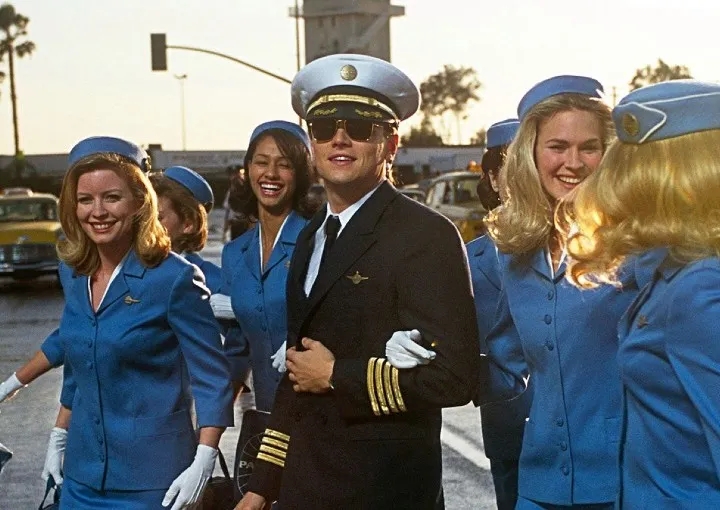CATCH ME IF YOU CAN
Dir. Steven Spielberg
2002
This past Christmas, unable to split the difference picking a holiday movie, I threw on Catch Me If You Can, a film which centers its core relationship between youth con artist Frank Abignale Jr. (Leonardo DiCaprio, maybe never better used for his charisma and ability to play nervy anxiety) and FBI Fraud Agent Carl Hanratty (Tom Hanks) on Christmas correspondence. While it spends a lot of its runtime in sunny Miami, Louisiana, and Georgia, this only drives into the stark relief the cold Christmas toward the end of the film set back in New York City
Really making the space to watch this as a “Christmas movie” helped really make the isolation and grief Frank has in deciding to be independent far too young. He’s a boy who saw his parents’ marriage fall apart and decided he’d use his skills to give them the resources and excuse to come back together. Watching it after Spielberg’s The Fabelmans, it’s almost impossible not to see how much of himself he poured into his portrayal of Abignale Jr. That’s true even before you read the real Frank Abignale’s account of the film, that the FBI chase was very accurately portrayed and the family relationship was almost entirely fictionalized.
Catch Me If You Can is one of Spielberg’s most vulnerable films – the (also fictional) scenes between Abignale Sr. (Christopher Walken, maybe at his career best) and his son give love and dignity back to a man whose role in the original story was to be a failure who lost touch with his son entirely. Walken plays these scenes with a recognition that the fantasy Jr.’s maintaining to honor Sr. as a father figure is a mutual charity – when it finally explodes, the anger at the condescension never stops betraying the pain.
But this is also one of Spielberg’s most electric and fun films, too. Frank’s fraud is consistently played as a farce, his scenes with Hanratty crackling with Golden Age Hollywood repartee and beautiful deadpan from Hanks. The score is one of John Williams’ liveliest in the 21st century, brass and piano playing cat and mouse and setting the 60s milieu alongside the wonderful production design and costuming. Janusz Kaminski shoots the film fairly modern, which allows for an athletic departure from the cinematic language the film’s 60s world would match, and it keeps the pace racing.
One of life’s great pleasures is the film that holds up. Some films are too exhausting to want to revisit, and others are too light on substance to keep being rewarding. I don’t think Spielberg is immune to either problem, but his best films are remarkably light on their feet while also offering layers and layers of character psychology and structural meaning. Spielberg opening his heart with this film gives it that extra push it needs to combine the dance and the brain into an enduring masterpiece.
